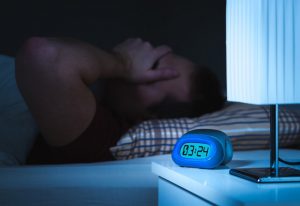Are you falling prey to the three most common sleep myths? If so, following a few helpful tips can help you get the quality sleep your body needs.
Sleep Myth #1: It’s OK to Get Less Than Seven Hours of Sleep

Getting a sufficient amount of quality sleep each night is essential because this is the period in which your body regenerates itself. While you slumber, your body repairs cells, tissue, brain functioning and your internal organs. This process also helps reduce inflammation, so your immune system can function more efficiently. Another important aspect of sleep is that it gives the body a chance to regulate hormone levels, which may fluctuate throughout the day.
So, how much sleep does your body really need? The rules you have previously heard are probably false. According to the National Sleep Foundation, adults between the ages of 18 and 65 need between seven and nine hours of quality sleep each night. Those over 65 can get away with seven to eight hours of sleep per night.
When it comes to children, sleep requirements vary with age. Infants and newborns need the most sleep, requiring between 12 to 17 hours of sleep, while teens need just about as much sleep as children: eight to 10 hours. As adolescents enter young adulthood, they can get by on slightly fewer hours of sleep, so their bedtimes can be gradually decreased.
Generally speaking, it may be acceptable to adjust sleep times slightly to suit the individual’s lifestyle, but only by an hour or so. Losing two hours or more of sleep each night begins to inhibit the body’s ability to function properly. As a result, missing too much sleep can make you more prone to illness, adverse health consequences and accidents.
Sleep Myth #2: Snoring is Normal
Even though 40 percent of people snore as they sleep, it’s not as “normal” as many people assume. When our airways are clear and open, we sleep silently and peacefully. However, many people have narrow airways that can become slightly obstructed as they sleep. In most cases, this is harmless and may only become a problem for their partners. Often, though, snoring obstructs deep, healthy sleep. While being overweight or consuming alcohol can contribute to a snoring problem, this still may not represent a serious health risk.
Erich Voigt, an ENT specialist at New York University, reveals that snoring is caused by vibrations elicited by air passing through the nose and mouth. For this reason, a snore that has a steady rhythm may not really be a cause for concern. However, loud or irregular snoring may indicate a more serious medical condition. Snoring that builds up in intensity, stops suddenly, and resumes with a snort indicates that the individual may be suffering from obstructive sleep apnea.
When this occurs, the airway becomes temporarily blocked, inhibiting the flow of air. In addition to affecting the individual’s ability to breathe, this type of snoring can also adversely affect heart health. Since most people don’t awaken during the night as a result of these breathing difficulties, they may not even know they have a problem. However, if your partner exhibits this type of snoring, you should advise them to seek medical treatment. Left untreated, obstructive sleep apnea poses serious risks to one’s health.
Sleep Myth #3: Drinking Alcohol at Night Helps You Sleep
Another one of the most common sleep myths is that drinking alcohol will help you sleep better. This is unequivocally a false assumption. As you attempt to sleep while intoxicated, your brain is involved in two contradictory sleep patterns at once. Your delta waves normally help you obtain a deep sleep, while alpha waves are created in a light resting state. When these two types of sleep patterns are induced at the same time, they combat one another and result in a more restless sleep.
Since you’re not sleeping well, your body’s internal clock, or circadian rhythm, is also disrupted. This is caused in part by the irregular release of a sleep hormone called adenosine. When you’re intoxicated, adenosine is released prematurely and allows you to fall asleep quickly. However, since the hormone wasn’t released naturally, it subsides quickly, and will likely cause you to awaken after a very short period of rest. This is why you may awaken frequently throughout the night after having had a few drinks.
Tips for Improving the Quality and Length of Your Sleep
Eliminate Caffeine
One of the biggest contributors to insomnia and other sleep disorders is the amount of caffeine we consume throughout the day. If you must drink coffee or other caffeinated beverages, try to drink them only in the morning and early afternoon. You should give your body four to six hours to flush the caffeine from your system before trying to sleep.
Evaluate Your Sleeping Quarters

Engage in Relaxing Activities
At least one hour before bed, you should put away all electronic devices. The blue lights their screens emit disrupt your circadian rhythm, which will keep you from falling asleep quickly. Instead, try taking a warm bath, meditating, practicing yoga or reading a good book.
If you have tried these suggestions and you’re still unable to get enough quality sleep, you may want to consider talking to your doctor. Snoring, insomnia, sleep apnea and other disorders can ultimately cause you to suffer more severe health consequences. Giving your body the sleep it needs is essential to your physical and emotional health.






